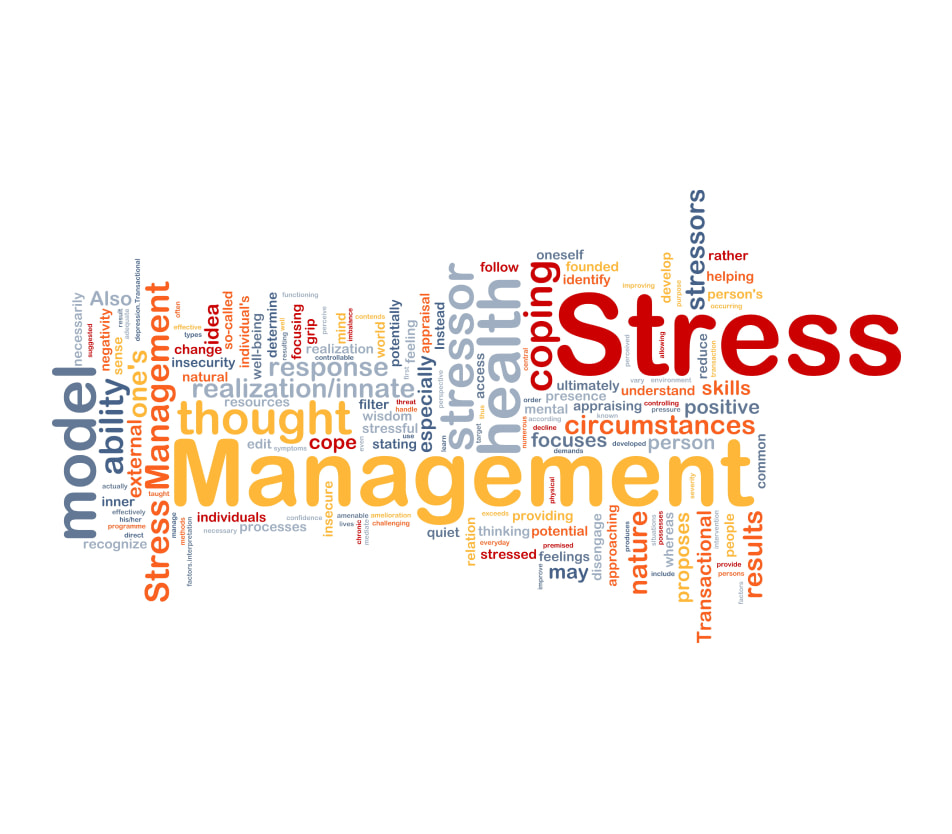The Importance of Stress Management

About Stress Management
Stress affects us all. While some people may be more prone to a build-up of stress than others, either because of busy lifestyles, past traumas or increased sensitivity, we can all find ourselves becoming overwhelmed.
A certain amount of stress is healthy.1 Our stress response helps us deal with challenging environments, signaling that we either need to face the challenge or run away from it. However, in modern-day situations where we cannot easily do either, stress tends to accumulate and can have lasting effects.
Learning to manage chronic stress can help you prevent emotional and physical burnout as well as other stress-related diseases.
Mental and Physical Stress Effects
Did you know that unhealthy, long-term stress can affect both your physical health and mental well-being?
Acute, short-term stress causes your muscles to tense up and then release once the danger has passed. But if you never find complete relief from stress, your muscles are likely to stay tense, causing musculoskeletal issues, such as migraines, back pain and even chronic pain conditions.2
If you’re chronically stressed, you might experience other common long-term effects such as:3
- Sleep disorders
- Fatigue
- Decreased libido
- Lack of motivation
- Difficulty concentrating
- Gastrointestinal issues
Ongoing stress can also put you in a bad mood and lead to relationship struggles, potentially putting you at risk of relying on drug and alcohol use to cope.
Over time, these effects can become debilitating and contribute to, or exacerbate, more severe conditions you might already have. As reported by the University of Minnesota, otherwise healthy adults who reported being under stress for eight years were more likely to die of cardiovascular disease.4 Other studies show that if you’re under chronic stress, you might experience decreased immune system functioning and even age quicker.
Stress Management Tips
While you can’t eliminate stress entirely, you can learn healthy coping skills to keep its damaging effects at bay. Research shows that there are positive steps you can take to decrease the impact that stress has on your life.
Try incorporating a variety of stress-reduction practices that address your mental, emotional and physical health:
- Mindfulness: Mindfulness is a meditative practice that brings present-moment awareness to your thoughts and feelings to alleviate physical and mental tension. Mindfulness-Based Stress Reduction (MBSR) is a type of mindfulness practice aimed at stress management. Research has found that MBSR can not only reduce stress, but it can also decrease your feelings of anxiety and increase your quality of life.5
- Gratitude: Cultivating positive emotions such as gratitude, awe and compassion has also been shown to reduce stress and can even lower inflammation throughout your body.6 Writing a daily gratitude list before bed and taking a few minutes each day to notice the things that make you feel a sense of gratitude and awe, such as the smile of a loved one or a beautiful scene, will not only make you feel good but also have a positive impact on your physical well-being.
- Exercise: While exercise is essential for your physical health, it’s also an effective way to improve your mental well-being. Aerobic activity activates your nervous system, releasing feel-good endorphins in your brain. Research shows that regular expertise may help to reduce feelings of depression and anxiety, improve your mood and build your self-confidence, all of which help you to better manage stress in your daily life.7
It’s also important to spend time outside in the fresh air and get restful sleep to fortify your body and mind against the impact of stress.
Your health matters, and stress management is an integral part of a holistic approach to maximizing your overall well-being.
<b>Medical Disclaimer</b>
The articles provided on this website are for informational purposes only. In addition, it is written for a generic audience and not a specific case; therefore, this information should not be used for diagnostic or medical treatment. This site does not attempt to replace the patient-physician relationship and fully recommends the reader to seek out the best care from his/her physician and/or diabetes educator.
References
- https://www.nimh.nih.gov/health/publications/stress/index.shtml
- https://www.apa.org/topics/stress/body
- https://www.mayoclinic.org/healthy-lifestyle/stress-management/in-depth/stress-symptoms/art-20050987
- https://www.takingcharge.csh.umn.edu/why-its-important-master-stress
- https://pubmed.ncbi.nlm.nih.gov/25818837/
- https://psycnet.apa.org/record/2015-01796-001?doi=1
- https://www.health.harvard.edu/staying-healthy/exercising-to-relax
DAR-0216 RevA







